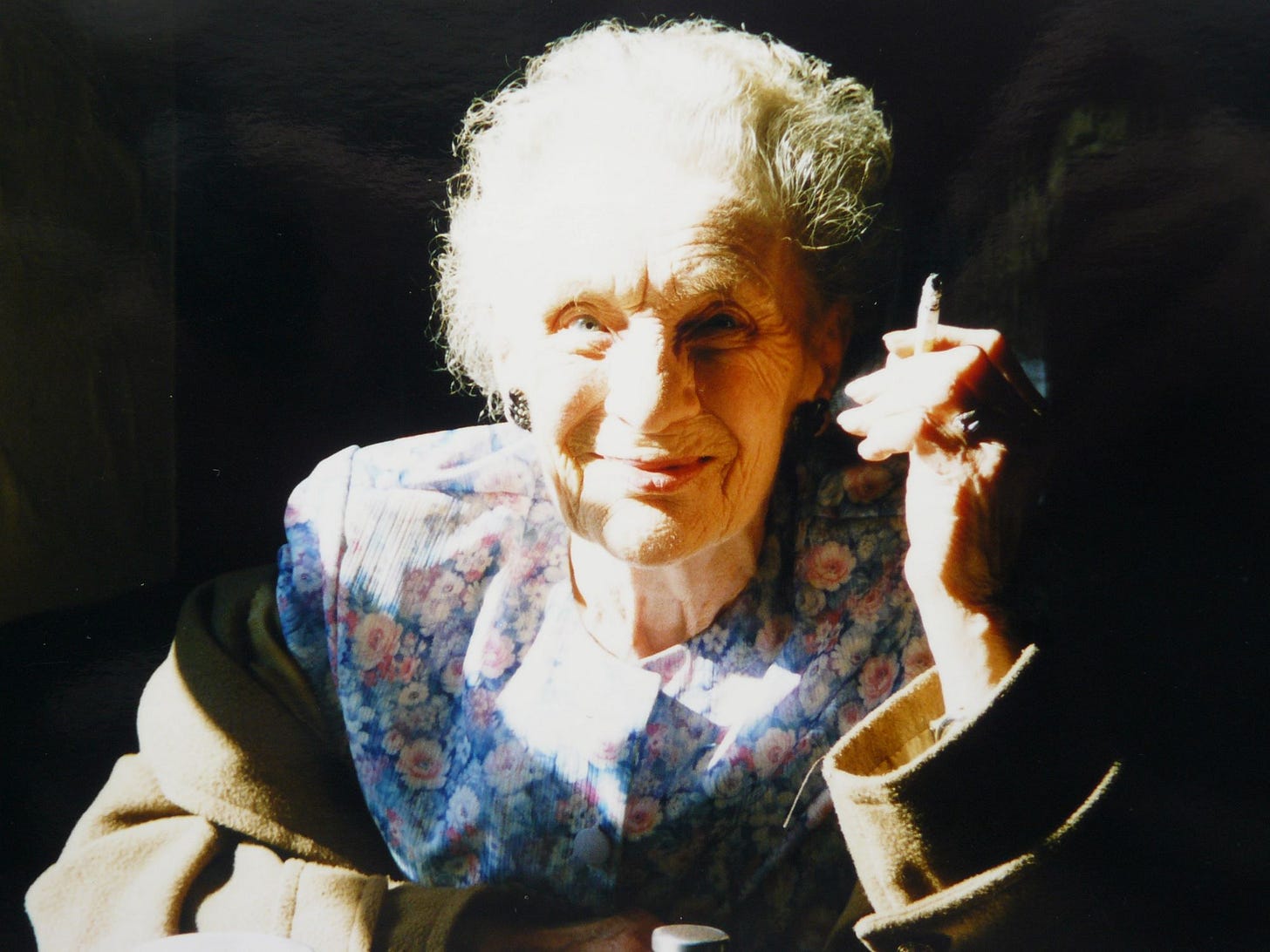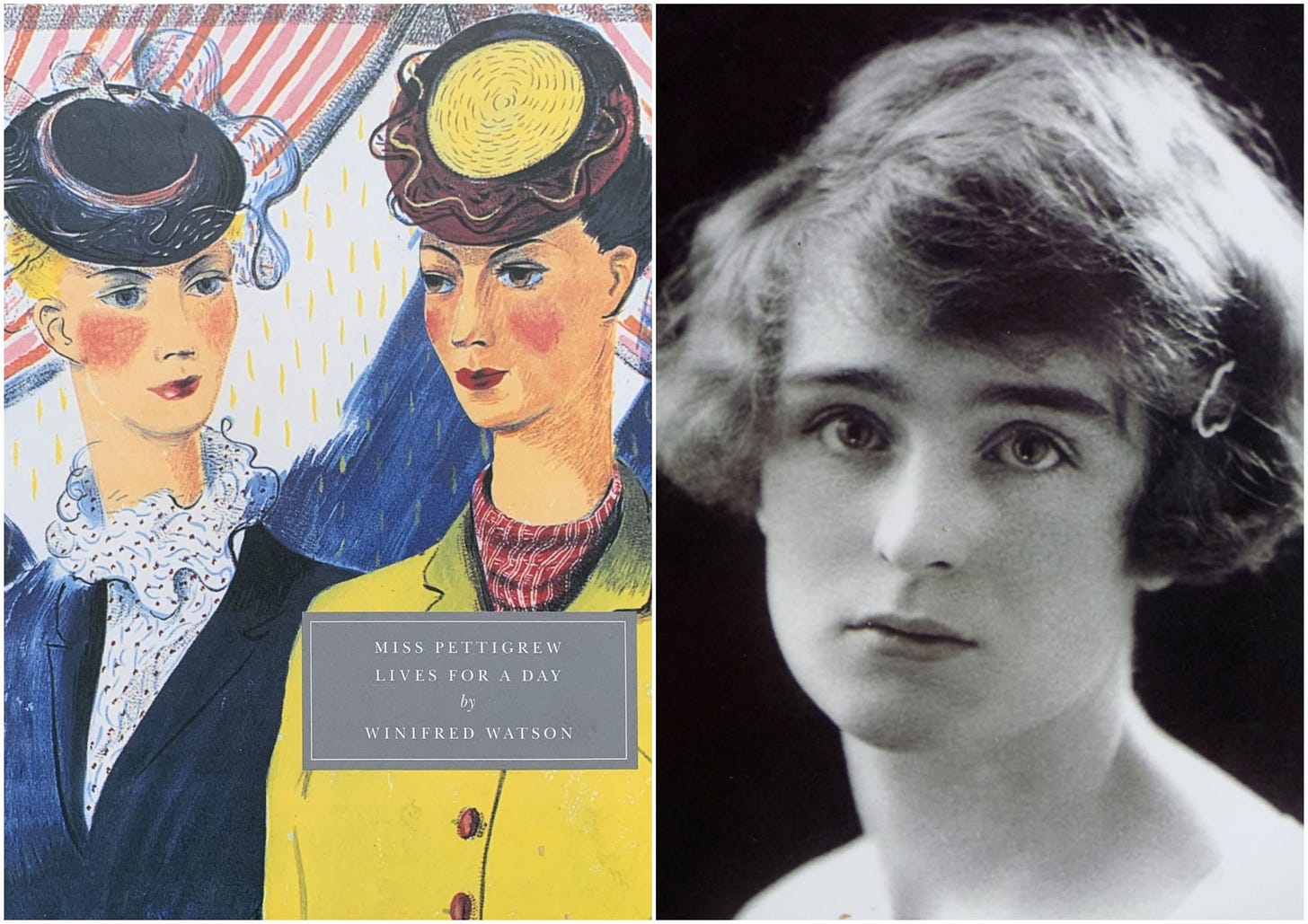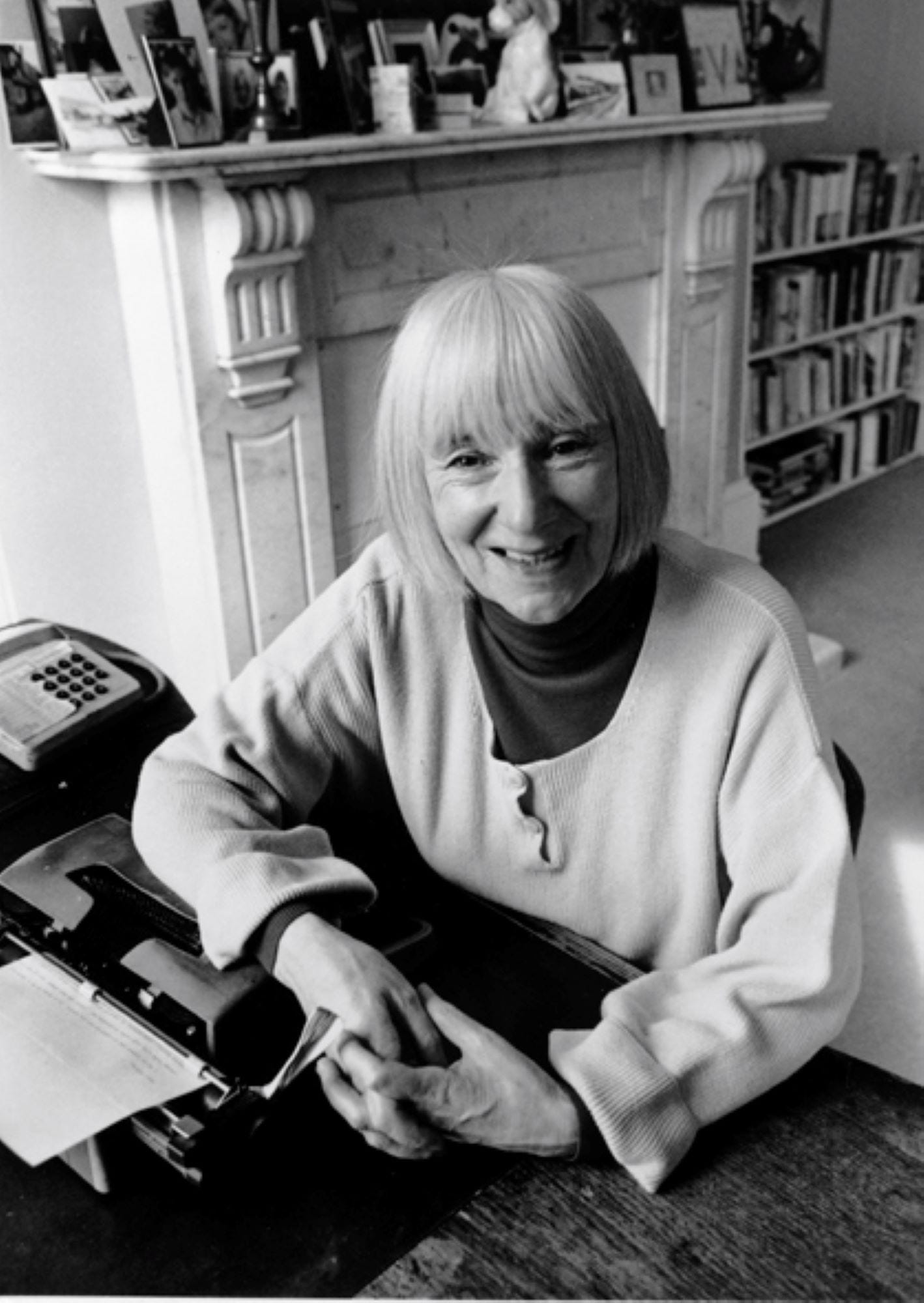25 years after 'Miss Pettigrew', Winifred's back in print
Authors Watson and Eva Ibbotson recalled
How nice to see Winifred Watson listed as a forthcoming North East literary attraction – and how delighted I imagine she would be.
I think of her when I walk up Matthew Bank in Newcastle where a German bomb wrecked her home and her writing career, but from which she and her baby son were miraculously spared.
I heard her story from that son, retired Guinness executive Keith Pickering, around the turn of the millennium which was when Winifred was rescued from obscurity by Persephone Books, a new independent publisher dedicated to reissuing lost gems by women writers.
Winifred was also present at the interview, living not far from where that bomb had fallen decades earlier, although her memory was failing.
She sat and smoked placidly, occasionally nodding assent, while Keith told the story as he had heard it from her when growing up. (Winifred smoked quite a lot, her son confided, and still liked a whisky at bedtime).
He explained how one night in 1941, when his mother had been working downstairs, she’d had a sort of premonition.
She’d torn upstairs, grabbed Keith from his cot and nipped back down just before the bomb fell, destroying next door and the upper part of her own home.
Forced then to move in with her in-laws – Winifred had married timber boss Leslie Pickering just before the war – she found the cramped conditions unconducive to writing and thereafter focused on bringing up Keith.
After the last of her six novels, Leave and Bequeath, was published in 1943, that was that - a premature end to a talent that had promised so much.
Born in Whitley Bay in 1906, Winifred rattled off her first novel because she reckoned she could improve on the “tripe” she was reading. But the manuscript sat in a drawer until her sister spotted an advert inviting submissions.
Doors opened for the then typist when Fell Top was published by Methuen in 1935 and Odd Shoes the following year.
Her breakthrough novel was her effervescent fourth, Miss Pettigrew Lives for a Day.
It was considered racy at the time, charting the adventures of a mature governess who is sent to work for a louche young nightclub singer who styles herself Delysia LaFosse.
Winifred said it was a world she knew nothing about. The story, with its reference to cocaine (Miss Pettigrew, scandalised after learning it’s not Beecham’s Powder, chucks it down the sink) had sprung from her vivid imagination.
Published in 1938, after initial reservations on the publishers’ part, it became a hit with readers and alerted Hollywood.
Billie Burke, who played Glinda the good witch in The Wizard of Oz, was lined up to play Miss Pettigrew in a film adaptation, only for the project to be shelved with America’s entry into the war.
And that was that… until Persephone Books, founded by Nicola Beauman, reissued Miss Pettigrew Lives for a Day in 2000 and put Winifred Watson – supported by Keith – back in the spotlight.
Winifred Watson died in 2002, aged 95. Very belatedly, in 2008, her most famous novel made it to the screen with Frances McDormand playing Miss Pettigrew.
But the story goes on and to mark the 25th anniversary of the successful reissue of Miss Pettigrew Lives for a Day, Persephone has this month published Winifred’s third novel, Hop, Step and Jump.
It was published in 1939, the week war broke out, and it tells of Jenny, born into poverty in a northern town, who marries fellow factory worker Bert but walks out on him when he proves to be a bad lot.
It “should be read on many levels,” state Persephone.
“It is a very good read in the romantic novel tradition; it dissects moral values and makes the reader think hard about what is involved in Jenny’s search for freedom and love; and it is fascinating about an ordinary working class woman’s life in 1930s England.”
Persephone Books editorial director Francesca Beauman, Nicola’s daughter, will be at Collected Books in Durham on October 27 and the Lit & Phil, Newcastle, on October 28. The good and bad news is that both events are sold out.
But there are tickets left for the Tyneside Cinema on October 29 when an event with New Writing North will see two notable North East authors up for discussion.
Francesca Beauman will talk about Winifred Watson and Lalage Bosanquet will discuss her mother, Eva Ibbotson, a brilliant writer of books for children and adults who was born in Vienna but lived for more than 60 years in Newcastle.
Her novels for young readers included The Great Ghost Rescue (1975), Which Witch? (1979), The Secret of Platform 13 (1994) – which she believed might have given JK Rowling the idea for Platform 9¾ in the Harry Potter novels, but wasn’t annoyed, saying all writers were inspired by others - and Journey to the River Sea (2001).
She was a fascinating woman and an engaging interviewee – and her mother, Anna Gmeyner, is also on the list of Persephone-published authors for Manja, a novel written in the 1930s which depicts the Nazi rise to power through the lives of five children born in different circumstances.
Anna, with young Eva, came to Britain before the war as a refugee after her work was banned by Hitler.
Her novel, originally published in Amsterdam in 1938 under the pen name Anna Reiner to protect family members in Germany, was re-issued by Persephone in 2003 under her own name.
Eva wrote a preface.
Anna Gmeyner died in York in 1991, aged 88; Eva Ibbotson, who lived for many years in Jesmond, Newcastle – I think of her when I pass her house too - died on October 20, 2010, aged 85.
Fifteen years after her death, her books are still in print - and, of course, in libraries - and delighting the readers who discover them.
The Tyneside Cinema event is at 6pm on Wednesday, October 29. Find ticket details on the cinema website.






For info, Bharat Nalluri who directed the 2008 film of Miss Pettigrew Lives for a Day, also hails from Newcastle. He was an active Young Filmmaker while at The Royal Grammar School when I was involved in RTS NE & Borders Annual Young People’s Filmakers celebrations. I was not surprised that he went on to have a successful career in film and television. Annie Wood (now Hodgkiss). And Miss P is a marvellous, joyous book!